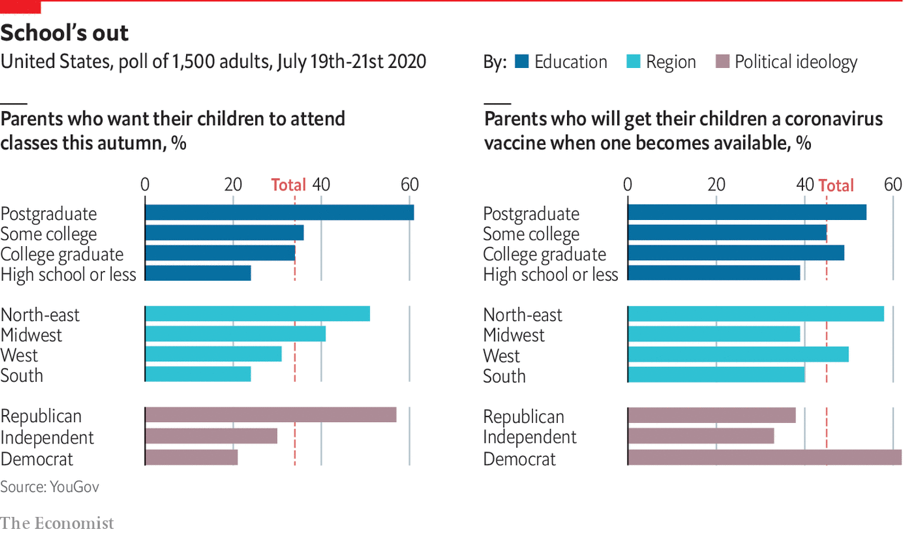
Published on August 13, 2020 / Leer en español
Dear Readers:
Summertime is usually the season for fun on the beach, traveling, or just hanging out with friends. This year, though, the time is out of joint as the great Bard wrote in Hamlet (1.5.188). The SARS-CoV-2 virus keeps spreading; the economy is in a deeper slump than initially thought; finding the right balance to take care of our health, the education of our children, and our responsibilities at work suddenly seems like an impossible task. On top of that, as Peggy Noonan writes in the Wall Street Journal, “there’s a definite sense of worry, of not knowing, and thinking there’s a long road until we’re done with this.”
For those of us who live in Puerto Rico, everything is compounded by the bankruptcy of the state; the stalled recovery from the hurricanes of 2017; and the damage caused by the earthquakes early this year. The times demand we balance the risks, make difficult tradeoffs, be courageous, do the right thing. But humankind cannot bear much of this, the time is out of joint.
It is twilight, when something, paraphrasing Barbara Tuchman, is palpably coming to an end, and everyone knows it but no one wants to speak of it. Soon we will be talking about the world of yesterday. The future, though, is yet inchoate. In the words of historian Anne Applebaum, “maybe fear of disease will create fear of freedom”…“or maybe the coronavirus will inspire a new sense of global solidarity. … Maddeningly, we have to accept that both futures are possible.”
Out of joint, indeed.
—Sergio M. Marxuach, Editor-in-Chief
Insights + Analysis from CNE

President Trump’s Executive Orders
By Rosanna Torres, Director – Washington, D.C. Office
After nine failed meetings between White House officials and Congressional leaders, President Trump issued four executive orders that seek to override the legislative impasse. The President’s actions are not unprecedented. Past presidents have also issued executive orders and presidential memoranda as policy instruments to communicate their agenda and carry out their goals.
On Saturday, August 8, the President issued one Executive Order and three presidential memoranda to: 1) minimize foreclosures and evictions; 2) approve a new lost wages assistance program; 3) defer tax withholdings and payments on payroll obligations, and; 4) extend a temporary student loan payment suspension.
It is important to keep in mind the executive has no authority to appropriate new funding and the U.S. Constitution does not explicitly delineate the authority of the President to enforce Executive Orders. In light of this, some states and lawmakers have already challenged these orders arguing it is an encroachment on congressional authority and that actions on payroll tax cuts will inevitably defund Social Security and Medicare entitlement programs.
In any case, the executive actions fall short of the scope and scale of federal programs necessary to meet the housing, health, education, and economic crises caused by the pandemic. One of the most awaited policies rested on the verdict over the extension of weekly payments of $600 in federal unemployment relief. The President outlines his intention to decrease weekly payments to $400, under the condition that states (including U.S. territories and Washington D.C.) assume the responsibility of one-fourth of that funding. This precisely at a time when Governors have requested more – not less – federal financial resources. Even worse, the executive actions drain FEMA’s Disaster Relief Fund at a time when the United States and its territories have been battered by multiple natural disasters: hurricanes, droughts, forest fires, and earthquakes.
We note this is all contingent on stalled negotiations between the White House and top Congressional leaders on a future relief package for the COVID-19-triggered economic crisis. Traditionally, lawmakers spend the month of August in their districts back home taking advantage of the entire month to boast on their congressional wins. This year, which has been unusual since the start of the year, the House and Senate are all on a 24-hour notice if they are needed to return to Washington for a vote.

Peña Martinez v. U.S. Department of Health and Human Services
By Sergio M. Marxuach, Policy Director
On August 3, 2020, Judge William G. Young, of the District of Massachusetts, sitting by designation in the U.S. District Court for the District of Puerto Rico, issued an opinion in the case of Peña Martinez v. the U.S. Department of Health and Human Services.
In that case, nine plaintiffs, all residents of Puerto Rico, challenged on constitutional grounds their exclusion from the Supplemental Security Income program (“SSI”); the Supplemental Nutrition Assistance Program (“SNAP”); and the Medicare Part D Low-Income Subsidy program (“LIS”). Specifically, the Plaintiffs argued that their exclusion from those welfare programs solely because of their status as residents of Puerto Rico violated the equal protection component of the Fifth Amendment’s Due Process Clause.
Judge Young, following the same “rational-basis” constitutional analysis set forth most recently in United States v. Vaello-Madero (2020), dismissed the arguments of the federal government and agreed with the Plaintiffs.
The economic impact of this decision, should it become binding, final, and applied to its full extent, is significant:
- LIS – According to Judge Young’s opinion, there are approximately 500,000 persons who could benefit from this program in Puerto Rico. The SSA estimates the average annual LIS benefit to be $5,000 in the U.S. That means residents of Puerto Rico could receive up to $2.5 billion in annual benefits under this program. Caveat: total benefits could be lower given that drug insurance premiums, deductibles, and co-payments are probably lower in Puerto Rico than in the 50 states.
- SSI – CNE has already estimated that if this program were applied in full to Puerto Rico, the annual benefits would be approximately $1.8 billion.
- SNAP – Advocates for SNAP parity estimate that Puerto Rico would receive an additional $1 billion in benefits if it is granted the same treatment as the states under SNAP. Caveat: total benefits would probably be lower if able-bodied adults without dependents between the ages of 18 and 49 are required to meet certain work requirements.
In sum, we estimate that certain residents of Puerto Rico could receive up to $5.3 billion in new benefits, or approximately 7.5% of Puerto Rico’s GNP, on an annual recurrent basis.
Most Americans Do Not Want to Send Their Children Back to School

In a recent poll for The Economist “by YouGov, a pollster, just a third of parents with school-age children say they want their children to go back to their classrooms in the autumn. Nearly half want them to stay at home. A sixth are not sure. Perhaps unsurprisingly, opinions are politically tinged: 57% of Republicans want their children back at school, against just 21% of Democrats (see chart). Parents’ educational background influences their views, too: 61% of those with advanced degrees want their offspring in class, compared with only 24% of those without any university degree.”
On Our Radar...
![]() The Summer of Our Discontent – “People who haven’t worried in years are worried, and it’s not about regular things, it’s about big and essential things. It’s a whole other order of anxiety” writes Peggy Noonan, former speechwriter for President Reagan, in the Wall Street Journal.
The Summer of Our Discontent – “People who haven’t worried in years are worried, and it’s not about regular things, it’s about big and essential things. It’s a whole other order of anxiety” writes Peggy Noonan, former speechwriter for President Reagan, in the Wall Street Journal.
![]() The Pandemic Depression – According to Carmen and Vincent Reinhart, writing in Foreign Affairs, “the shared nature of this shock—the novel coronavirus does not respect national borders—has put a larger proportion of the global community in recession than at any other time since the Great Depression. As a result, the recovery will not be as robust or rapid as the downturn.”
The Pandemic Depression – According to Carmen and Vincent Reinhart, writing in Foreign Affairs, “the shared nature of this shock—the novel coronavirus does not respect national borders—has put a larger proportion of the global community in recession than at any other time since the Great Depression. As a result, the recovery will not be as robust or rapid as the downturn.”
![]() Election Games – A new assessment by the National Counterintelligence and Security Center (“NCSC”) found that China, Russia, and Iran may be trying to influence the result of the U.S. presidential elections in November. According to the NCSC, “China prefers that President Trump – whom Beijing sees as unpredictable – does not win reelection; Russia is using a range of measures to primarily denigrate former Vice President Biden and what it sees as an anti-Russia ‘establishment’; and Iran seeks to undermine U.S. democratic institutions, President Trump, and to divide the country in advance of the 2020 elections.” Read the full story in the New York Times here.
Election Games – A new assessment by the National Counterintelligence and Security Center (“NCSC”) found that China, Russia, and Iran may be trying to influence the result of the U.S. presidential elections in November. According to the NCSC, “China prefers that President Trump – whom Beijing sees as unpredictable – does not win reelection; Russia is using a range of measures to primarily denigrate former Vice President Biden and what it sees as an anti-Russia ‘establishment’; and Iran seeks to undermine U.S. democratic institutions, President Trump, and to divide the country in advance of the 2020 elections.” Read the full story in the New York Times here.
